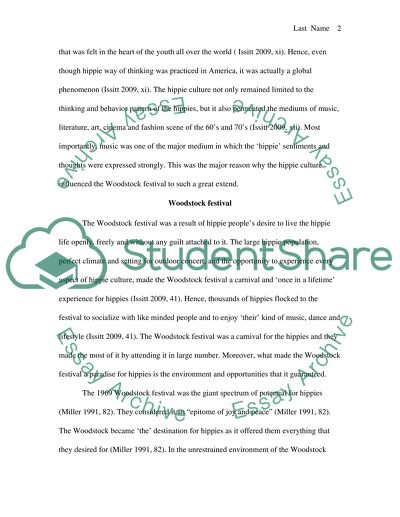Cite this document
(“Woodstock and hippie culture Essay Example | Topics and Well Written Essays - 1250 words”, n.d.)
Retrieved de https://studentshare.org/environmental-studies/1412275-woodstock-and-hippie-culture
Retrieved de https://studentshare.org/environmental-studies/1412275-woodstock-and-hippie-culture
(Woodstock and Hippie Culture Essay Example | Topics and Well Written Essays - 1250 Words)
https://studentshare.org/environmental-studies/1412275-woodstock-and-hippie-culture.
https://studentshare.org/environmental-studies/1412275-woodstock-and-hippie-culture.
“Woodstock and Hippie Culture Essay Example | Topics and Well Written Essays - 1250 Words”, n.d. https://studentshare.org/environmental-studies/1412275-woodstock-and-hippie-culture.


